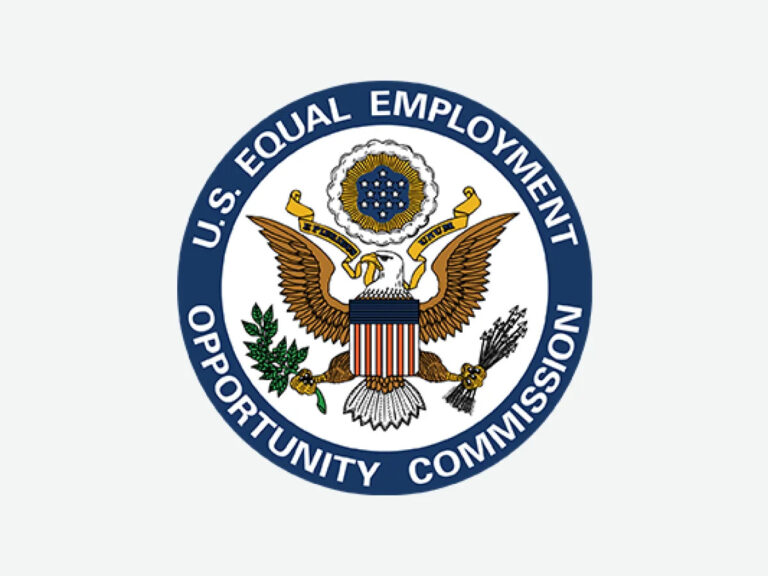A recent incident in which a woman was dismissed from her job due to her participation in a White Nationalist online forum has stirred a whirlpool of debate. Despite her exemplary performance record, her employer decided that her personal ideologies conflicted with their policies on diversity and inclusion, ultimately leading to her dismissal. This case raises significant questions about the balance between individual freedom of speech and the need for a respectful, inclusive work environment. As we explore this topic, we must consider the broader implications for both employee rights and corporate responsibilities in today’s sociopolitical climate.
Unveiling the Incident Details
Delving into the details of the incident, it becomes apparent that the termination of the woman’s employment was not without controversy. The incident timeline traces back to the discovery of her active involvement in a White Nationalist online forum. This revelation, made by an anonymous source within the company, marked the onset of a series of events that would culminate in her dismissal.
The employee background, meanwhile, painted a different picture. She was a dedicated staff member with a record of high performance and no prior disciplinary issues. However, her online activities raised serious concerns among her colleagues and superiors about her commitment to the company’s diversity and inclusion policies.
The controversy intensified when the woman’s activity on the forum came to light, which included posts promoting White Nationalist views. The company, faced with mounting internal and external pressure, made the decision to terminate her employment. This decision, while difficult, was deemed necessary to maintain the integrity of the company’s commitment to diversity and a safe, inclusive work environment for all employees.
Legal Aspects of Dismissal
In the context of the aforementioned dismissal, it is essential to contemplate the legal dimensions such as the boundaries of freedom of speech and workplace discrimination laws. Questions arise concerning where the line is drawn between individual beliefs and employment policies. This necessitates an examination of the legalities involved, assuring the rights of the individual while maintaining the integrity of the workplace.
Freedom of Speech Limits
The concept of Freedom of Speech, enshrined in many legal systems worldwide, has its limitations, particularly when it comes to the workplace. While it defends individuals’ rights to express their views, it does not give immunity against the consequences that may stem from those expressions, especially when they cause harm or incite violence.
In the context of the workplace, the boundaries of speech become even more critical. Employers have a legal responsibility to guarantee a safe and respectful environment, free from harassment and discrimination. This often necessitates setting clear speech boundaries to prevent ideological conflict. Employees are expected to exercise their right to freedom of speech within these limits, guaranteeing their expressions do not infringe upon the rights and safety of others.
However, the process of determining what constitutes harmful speech can be complex, often requiring legal intervention. One must balance the right to express potentially controversial views with the need to maintain a respectful, inclusive workplace. Cases like the recent dismissal of a woman over her white nationalist views underline the importance of this balance. In the end, freedom of speech is not absolute, especially in the workplace where respect for diversity and inclusion is paramount.
Workplace Discrimination Laws
A significant number of cases in the legal arena revolve around workplace discrimination laws, specifically those concerning wrongful dismissal. These laws are designed to safeguard employee rights and guarantee fair treatment, irrespective of race, gender, religion, or political views.
Wrongful dismissal is a significant issue, often leading to discrimination claims. The law stipulates that an employer cannot terminate an employee based on personal characteristics or beliefs. However, the interpretation of this principle can be complex when those beliefs potentially create a hostile work environment.
In practice, the court examines if the employer made reasonable efforts to accommodate the employee’s rights, and whether the dismissal was a proportionate response. Employers are encouraged to adopt effective internal mechanisms to assess potential discriminatory behavior, aiming to resolve disputes before they escalate to legal claims.
In the context of the article, the question arises whether holding white nationalist views, considered by many as hate speech, is protected under anti-discrimination laws. This issue underscores the challenge of striking a balance between protecting employee rights and maintaining a safe, respectful workplace. As a result, continuous review and evolution of workplace discrimination laws are pivotal in addressing these complex scenarios.
Ethical Considerations at Play
The ethical considerations in this case revolve around three key points: understanding workplace ethics, the implications of personal beliefs in a professional setting, and the potential consequences of discriminatory views. A thorough understanding of workplace ethics is vital in comprehending the context of this dismissal. The interplay between personal beliefs and professional conduct, as well as the ramifications of holding discriminatory views, are essential factors to take into account in this discussion.
Understanding Workplace Ethics
Often, in the contemporary workplace, ethical considerations become a essential part of the professional discourse. The responsibility of creating a conducive work environment does not rest solely on the shoulders of management. It is also the employee’s responsibility to uphold the ethical standards of the organisation.
A key part of workplace ethics is ethical leadership. Leaders in the workplace have a significant influence on the ethical climate of an organization. Their decisions and actions often set the tone for what is acceptable and what is not. They have the responsibility of modeling appropriate behavior and setting a good example for their subordinates.
Moreover, the ethical norms of a workplace also hinge on the actions and conduct of individual employees. It is their responsibility to adhere to these norms and contribute to a positive work environment. Actions that breach the ethical code of an organization can disrupt the harmonious working of the team and can lead to disciplinary action, as seen in the aforementioned case.
Understanding workplace ethics is a two-way street involving both the leadership and employees ensuring a respectful, fair, and inclusive environment. The repercussions of not adhering to these can have significant professional and personal implications.
Implications of Personal Beliefs
Diving into the domain of personal beliefs, it’s vital to understand their potential influence on workplace dynamics. Personal identity and belief systems can deeply affect the attitudes and behaviors of individuals in a professional environment. However, it’s important to delineate between personal beliefs that promote diversity and those that may foster division or discrimination.
Beliefs are integral to a person’s identity, shaping their worldview and guiding their decisions. In an ideal world, these beliefs would coexist harmoniously, regardless of their diversity. However, some ideologies, particularly those that propagate hate or divisiveness, can disrupt this harmony, leading to tension, hostility, or even outright conflict.
Moreover, belief systems can impact how individuals interpret ethical guidelines, potentially leading to incompatible actions and values within a workplace. For instance, a person who strongly identifies with a belief system that promotes exclusion or superiority might struggle to abide by a company’s fairness and equality policies.
An individual’s personal beliefs should not impede the rights, safety, or comfort of others in any professional environment. Consequently, it’s important for organizations to continually assess the potential implications of personal beliefs on workplace dynamics and take appropriate action to guarantee a respectful, inclusive environment.
Consequences of Discriminatory Views
In numerous instances, discriminatory views held by employees have led to considerable ethical dilemmas within organizations. Such discriminatory beliefs, often deeply ingrained, can result in harmful actions that impact both the individual and the collective workforce. The discrimination impact might not only influence the job performance of the targeted individuals but could also greatly affect employee morale.
When employees perceive that their organization tolerates discrimination, trust in the organization declines, which in turn affects productivity and engagement. Furthermore, organizations are legally obligated to provide a work environment free from discrimination, and failure to do so could result in severe legal consequences.
The ethical considerations at play are complex and multifaceted. Employers must balance the rights of the individual to hold personal beliefs against the rights of other employees to a non-hostile work environment. As a result, a proactive stance against discriminatory views is not only ethically sound but also fosters a more inclusive, productive work environment. To summarize, discriminatory views, when left unchecked, can lead to a multitude of negative consequences that extend far beyond the offending individual, thereby underscoring the importance of swift and decisive action against such behavior.

Workplace Policies on Extremist Views
Addressing extremist views in the workplace is a delicate, yet necessary, task that employers across various industries must grapple with. Striking a balance between respect for freedom of speech and maintaining a harmonious working environment is often a challenge.
Workplace policies need to clearly define what constitutes extremist ideologies. These generally include beliefs that promote violence, discrimination, or exclusion based on race, religion, gender, or other protected characteristics. Additionally, these policies should state that promoting such ideologies in the workplace is unacceptable, as it can create a hostile work environment and potentially even violate laws against discrimination.
Another critical aspect is employee conduct. Policies should articulate that employees are expected to treat each other with respect, regardless of their beliefs. This includes not imposing their views on others, especially if they are extremist in nature.
Employers should also include provisions for handling violations of these policies, such as disciplinary action or termination. This is necessary to deter employees from engaging in such behavior and to show that the company takes these matters seriously.
The goal is to maintain a workplace that is safe, inclusive, and conducive to productivity, while respecting individual rights and freedoms.
Public Reaction to the Firing
Following the termination of the employee over her extremist views, public reaction has been mixed. The divided sentiment is evident across various platforms, perhaps most markedly in the social media backlash that emerged in the wake of the firing.
A considerable number of netizens have lauded the decision, arguing that it sends a strong message against the propagation of hateful ideologies. They see the move as a necessary step to maintain a safe, inclusive workplace environment. On the flip side, others decry what they perceive as a suppression of free speech, asserting that personal beliefs should not be grounds for professional consequences.
The community response has mirrored this polarized reaction. Local groups advocating for equality and inclusivity have expressed support for the company’s stance, rallying behind the notion that there is no place for prejudice in the workforce. Conversely, civil liberties organizations have raised concerns about the potential infringement of individual rights and the precedent this could set.
Broader Implications for Employers
This polarizing incident brings to the fore the broader implications for employers in managing their workforce. It raises critical questions about the balance between employee rights and corporate responsibility.
In an era where personal and professional lives are increasingly intertwined, it becomes challenging for employers to delineate between an employee’s private beliefs and their work-related conduct. Employees have the right to hold personal views, but when these views become public and potentially harmful to the company’s reputation, employers may feel obliged to intervene.
Corporate responsibility, on the other hand, extends beyond the business’s financial performance. It includes ensuring a safe and inclusive environment for all employees. If an employee’s publicly expressed views create a hostile environment for colleagues, the employer is responsible for addressing the situation.
The key issue for employers, consequently, is to find a balance that respects both employee rights and corporate responsibility. This involves setting clear policies, providing training to encourage respectful dialogue, and fostering a workplace culture that values diversity and inclusion. It’s a nuanced task, one that requires careful consideration and constant adaptation to evolving societal norms and legal frameworks.
Precedents in Employment Law
Examining precedents in employment law provides valuable insight into how such cases have been handled in the past. The intersection between employment rights and ideological conflicts often becomes a contentious area, presenting complex challenges for employers and employees alike.
Historically, cases like these hinge on the understanding of whether personal ideologies can be grounds for termination. The law generally supports the employer’s right to dismiss an employee for conduct that negatively affects the workplace environment, even if such conduct is rooted in the employee’s ideological beliefs. Significant cases, such as ‘Payne v. Western & Atlantic Railroad (1884)’ and ‘Pickering v. Board of Education (1968)’, underpin this principle.
However, it’s also essential to reflect on the legal protections offered to employees. The First Amendment rights, prohibiting employers from retaliating against employees for their political affiliations or beliefs, have been upheld in ‘Rankin v. McPherson (1987)’.
The intricacies of these precedents underline the necessity for employers to tread carefully when addressing ideological conflicts in the workplace. They should endeavor to strike a balance between maintaining a harmonious work environment and respecting the individual ideological beliefs of their employees.







